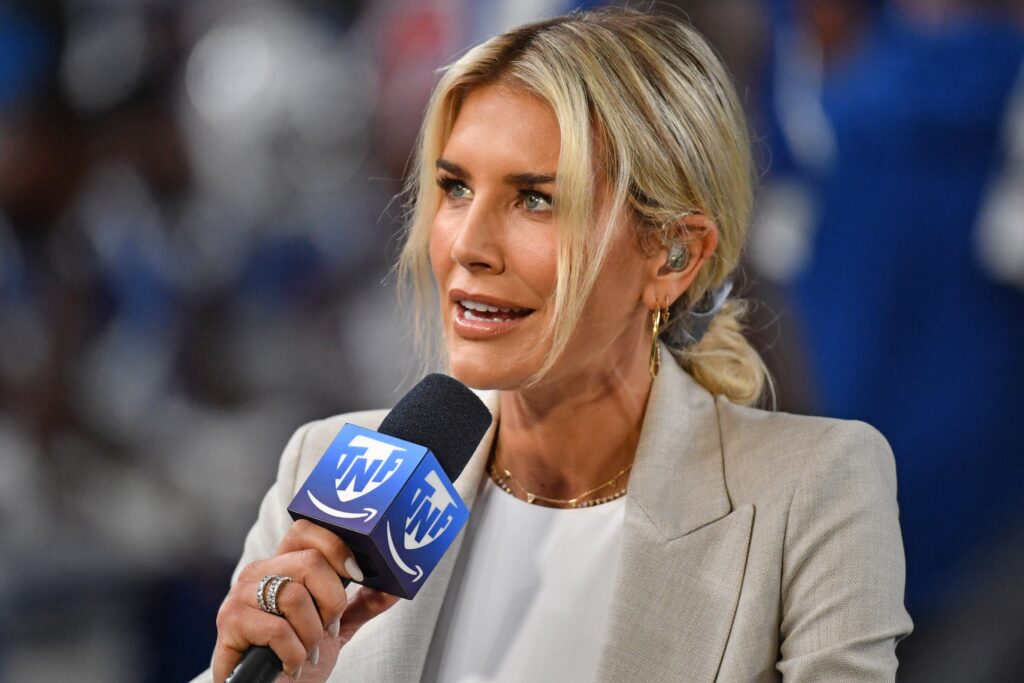Ad Disclosure
Charissa Thompson with an Instagram Clarification After Saying She Makes Up Sideline Reports

Charissa Thompson got roasted after going on Pardon my Take and saying that she sometimes just makes up sideline reports. The original video tweet was deleted by Barstool, and Thompson went to IG to clarify:
View this post on Instagram
Thompson:
“Ok let’s address the elephant in the room. I have a responsibility to myself my employers to clarify what is being reported. When on a podcast this week, I said I would make up reports early in my career when I worked as a sideline reporter before I transitioned to my current host role. Working in media I understand how important words are and I chose the wrong words to describe the situation. I’m sorry. I have never lied about anything or been unethical during my time as a sports broadcaster. In the absence of a coach providing any information that could further my report, I would use information that I learned an saw during the first half to create my report. For example, if a team was 0 for 7 on 3rd down, that would clearly be an are they need to improve on in the second half. In these instances I never attributed anything I said to a player or coach. I have nothing but respect for sideline reporters and for the tireless work they put in behind the scenes and on the field. I am only appreciative and humbled to work alongside some of the best in the business and call them some of my best friends.”
“What is being reported” made me laugh out loud. You went on a podcast and said it! You are the source! Christ almighty.
But there’s your explanation. Earlier this week she admitted to making shit up, now she says she was just sharing general observations without direct attribution. You can believe whatever you want to believe.
The funny thing is that this has turned into some referendum on the existence of the sideline reporter. Sports journalism Twitter is going bonkers and acting like this is the most important thing of all time, while fans do not seem to give one-one-billionth of a shit.
The only thing I’d add to what we wrote Thursday is that everyone should draw a distinction between sideline reporting and in-game interviewing. If, for example, Pam Oliver uses her location to observe a player coming out of the locker room wearing a knee brace, then that is news of value to the television viewer. If, however, Pam asks Andy Reid about the first half and he says “we have to execute and protect the football,” then that is useless information that serves no purpose.
Nobody needs the boilerplate in-game/half-time coach interview, which I think we’re mostly in agreement on. The value of the sideline reporter comes from leveraging their position to see things we can’t see, and then share that information with the viewer. Then, after the game, they’re on the field to get instant reaction.
Thank you and have a great day!
Kevin has been writing about Philadelphia sports since 2009. He spent seven years in the CBS 3 sports department and started with the Union during the team's 2010 inaugural season. He went to the academic powerhouses of Boyertown High School and West Virginia University. email - k.kinkead@sportradar.com